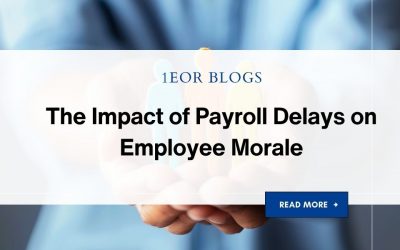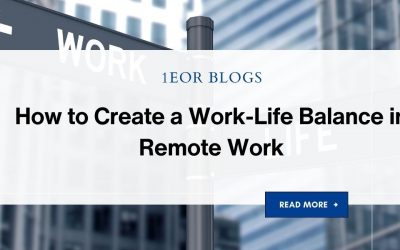In the rapidly evolving world of talent acquisition, choosing the right recruitment strategy can make or break a company’s hiring success. RPO vs. Contingent Recruitment: Which Is Better? This question often arises for businesses looking to scale, optimize resources, or improve hiring quality. Understanding the differences, advantages, and potential drawbacks of each model is crucial for aligning your recruitment efforts with your business goals.
Recruitment Process Outsourcing (RPO) and Contingent Recruitment are two popular but distinct approaches. While both aim to fulfill hiring needs, they differ greatly in strategy, cost structure, accountability, and scalability. In this article, we’ll break down these models and help you decide which one is the best fit for your organization.
Let’s explore each model in detail, compare them, and discover why many companies are shifting toward more strategic recruitment partnerships in 2025.
What Is Recruitment Process Outsourcing (RPO)?
Recruitment Process Outsourcing (RPO) is a strategic partnership where a company outsources all or part of its recruitment function to a third-party provider. Unlike traditional staffing models, RPO providers embed themselves within your organization to manage hiring holistically.
In an RPO model, the provider becomes an extension of your internal HR team. They handle everything from sourcing and screening to onboarding, employer branding, and even workforce planning. This full-cycle approach creates a customized, scalable, and data-driven hiring solution. In addition to recruitment strategies, incorporating efficient global payroll solutions can further enhance operational effectiveness, ensuring compliance and accuracy in employee compensation across multiple countries.
Key Benefits of RPO:
- Dedicated recruiters aligned with your brand and culture
- Scalable hiring to meet seasonal or rapid growth needs
- Advanced analytics and recruitment technology
- Employer branding support and candidate experience improvement
- Long-term talent pipeline development
RPO is often ideal for mid to large enterprises that hire frequently and want to improve both the quality and efficiency of recruitment. It also ensures better compliance, reduced time-to-fill, and a consistent candidate experience.
What Is Contingent Recruitment?
Contingent Recruitment, on the other hand, is a transactional model where recruitment agencies are paid only when a candidate is successfully hired. There’s no upfront cost, which makes it appealing to companies with limited budgets or occasional hiring needs.
In this model, multiple agencies might compete to fill a role as quickly as possible. The focus is primarily on speed rather than long-term talent strategies. While it offers flexibility and quick access to talent, it lacks the customization and accountability of an RPO. Utilizing Employer of Record services can help streamline international recruitment, ensuring compliance and seamless management of cross-border employees.
Advantages of Contingent Recruitment:
- Pay-per-hire model with no initial commitment
- Quick turnaround time for urgent hires
- Access to wide candidate pools through multiple agencies
- Useful for one-off or hard-to-fill positions
However, since the relationship is more transactional than strategic, the candidate quality can vary, and long-term alignment with company goals is often missing.
Comparing the Two Models: RPO vs. Contingent Recruitment
Understanding the key differences between RPO and Contingent Recruitment is vital when evaluating the best fit for your business. Below is a comparison table to summarize their core distinctions:
| Feature | RPO | Contingent Recruitment |
| Payment Model | Fixed/Monthly or project-based | Pay-per-hire |
| Relationship Type | Strategic partnership | Transactional |
| Candidate Quality | High (aligned with employer brand) | Varies (speed-focused) |
| Time-to-Fill | Optimized but not rushed | Fast but sometimes rushed |
| Scalability | Highly scalable and flexible | Limited scalability |
| Tech Integration | Yes (ATS, analytics, AI tools) | Rarely integrated |
| Employer Branding | Strong emphasis | Minimal involvement |
| Risk Sharing | Shared accountability | Risk mostly on agency |
| Use Case | Ongoing, high-volume hiring | Occasional, niche, or urgent roles |
As you can see, the choice between these two approaches is not one-size-fits-all. It depends heavily on your company’s hiring frequency, goals, budget, and internal capabilities. Leveraging the right HR tools for recruitment optimization can complement the technological advantages of RPO, offering enhanced data management and streamlined workflows.
Why Companies Are Shifting Toward RPO in 2025
The modern hiring landscape demands more than just filling open roles. It requires strategic foresight, adaptability, and a strong employer brand. That’s why many businesses are leaning towards RPO in 2025.
Here’s why RPO is gaining traction:
- Data-Driven Recruitment: RPO providers use advanced analytics to improve quality-of-hire and optimize sourcing strategies.
- Cost Efficiency: Although it may seem costly upfront, RPO reduces long-term costs by lowering turnover and improving retention.
- Improved Candidate Experience: With consistent communication and employer branding, RPO ensures a seamless journey for candidates.
- Global Reach with Local Expertise: RPOs like 1eor combine international recruitment reach with compliance and localization expertise.
- Adaptability: Whether scaling up or downsizing, RPO models are built for flexibility without sacrificing quality.
For companies navigating talent shortages or looking to improve diversity hiring, RPO offers the infrastructure and innovation needed to compete in a tough labor market. Additionally, Managed Service Provider solutions can help companies scale their recruitment processes even further, ensuring that all staffing needs are met with efficiency and quality.
RPO vs. Contingent Recruitment: Which Is Better?
Now comes the big question: RPO vs. Contingent Recruitment: Which Is Better?
The answer depends on your business’s unique needs. However, the trends and long-term benefits heavily favor RPO. If your organization values strategic alignment, employer branding, and continuous talent development, RPO is the better choice. It’s not just about hiring fast—it’s about hiring smart.
Contingent recruitment works well for:
- Startups with tight budgets
- Companies with occasional hiring needs
- Niche roles requiring external expertise
Meanwhile, RPO is ideal for:
- High-growth companies scaling rapidly
- Enterprises with complex hiring requirements
- Businesses seeking better control over recruitment metrics
Ultimately, choosing between these models should be a strategic decision based on cost, culture fit, and long-term talent goals. Integrating RPO amplifiers can further enhance the effectiveness of a recruitment strategy, boosting both reach and efficiency while improving the overall candidate experience.
The Role of Technology in RPO vs. Contingent Recruitment
In today’s recruitment landscape, technology plays an essential role in enhancing the efficiency and effectiveness of hiring processes. Both RPO and Contingent Recruitment benefit from technology, but they leverage it in different ways.
RPO and Technology Integration
RPO providers often have access to advanced recruitment technologies, such as Applicant Tracking Systems (ATS), Artificial Intelligence (AI) tools, and data analytics platforms. These technologies not only streamline recruitment processes but also enhance the candidate experience, improve decision-making, and optimize the hiring timeline.
- ATS and AI: These tools help filter and assess candidates based on predefined criteria, saving significant time and reducing human bias.
- Analytics: With real-time data and insights, RPOs are able to identify bottlenecks, track performance, and make data-driven decisions that continuously improve recruitment efforts.
- Employer Branding Tools: Modern RPO solutions also often come equipped with tools that allow businesses to boost their employer brand through candidate experience initiatives, social media campaigns, and tailored messaging.
In contrast, Contingent Recruitment typically uses more basic tools, often limited to job boards and their internal databases. While they may have access to some technology, it’s generally less integrated and more focused on candidate search and placement rather than strategic, long-term recruitment optimization.
The Impact of Technology on Decision Making
Technology helps companies make more informed hiring decisions. RPO providers use these tools to ensure that the candidates presented align closely with the company’s culture, values, and long-term needs. On the other hand, Contingent Recruitment often focuses on speed, which may lead to compromises on the quality of hire.
If your organization is focused on hiring the best talent with minimal risk, then RPO’s integration of technology will likely provide more benefits in the long run.
RPO vs. Contingent Recruitment: The Cost Factor
One of the biggest considerations when deciding between RPO and Contingent Recruitment is cost. Both models offer distinct advantages, but the financial aspects vary significantly.
RPO: A Long-Term Investment
While RPO may seem more expensive upfront, especially if you’re paying a retainer or monthly fee, it offers significant long-term cost savings. Here’s why:
- Lower Turnover: By focusing on quality of hire and candidate fit, RPO reduces the likelihood of poor hires, which can cost your company in terms of training, lost productivity, and recruitment.
- Operational Efficiency: RPO eliminates the need for multiple recruitment agencies, internal recruiters, and overhead costs associated with managing recruitment processes.
- Better Utilization of Technology: Since RPO providers utilize state-of-the-art recruitment technology, they can optimize candidate sourcing, reducing hiring timelines and improving cost-per-hire metrics.
Contingent Recruitment: Pay for Success
Contingent recruitment is typically more affordable in the short term, as companies only pay when a hire is made. There are no retainer fees or ongoing costs involved. However, the pay-per-hire model often comes with its own set of challenges:
- Higher Cost per Hire: Since contingent recruiters focus on speed, you may find yourself needing to fill positions more frequently, leading to higher recruitment fees.
- Potential for Lower Quality: Due to the competitive, performance-based model of contingent recruitment, there’s often a rush to place candidates quickly, which can lead to mismatches and the need for rehiring.
Although Contingent Recruitment may be the more affordable option upfront, the long-term cost implications of poor hires and rapid turnover can add up. RPO, on the other hand, is a more predictable investment that can deliver better ROI over time.
When to Choose RPO Over Contingent Recruitment
If your organization is experiencing rapid growth, has ongoing recruitment needs, or faces a competitive labor market, RPO is likely the better choice. Here are some specific scenarios where RPO vs. Contingent Recruitment: Which Is Better? leans heavily in favor of RPO:
1. High-Volume Recruiting
For companies needing to hire large numbers of employees consistently, RPO offers scalability and a structured approach to recruitment. Whether it’s scaling for seasonal demands or expanding to new markets, an RPO provider can help streamline the entire hiring process without sacrificing quality.
2. Long-Term Talent Strategy
If your business aims to build a sustainable talent pipeline, RPO can help develop a strategy that focuses on long-term workforce needs. By focusing on talent pooling and creating a continuous flow of qualified candidates, you’ll be better prepared for future hiring demands.
3. Building a Strong Employer Brand
A strong employer brand is essential in today’s competitive market. If your goal is to attract top-tier talent, RPO can assist in shaping and promoting your employer brand, ensuring consistency and an attractive image in the talent pool.
4. Access to Expertise and Technology
With an RPO model, your organization gains access to specialized recruitment expertise and cutting-edge technology. From market insights to streamlined processes, these providers offer solutions that are difficult to replicate with contingent agencies.
When to Choose Contingent Recruitment
Despite the many benefits of RPO, there are still situations where Contingent Recruitment could be the better choice. Here are some examples:
1. Limited Hiring Needs
If your organization has sporadic or low-volume recruitment needs, contingent recruitment may be more suitable. It allows you to tap into specialized talent without the need for long-term commitments or upfront fees.
2. Urgent Hiring Situations
For immediate or urgent hiring needs, contingent recruiters often have a larger network of candidates available quickly. They specialize in filling positions at short notice and can be a good choice when you need to fill a role fast.
3. Specialized, Niche Roles
If you are recruiting for highly specialized or niche roles, contingent recruitment agencies often have extensive networks and deep expertise in those areas. Their focus on specific industries or functions can be invaluable for finding candidates with hard-to-find skill sets.
Final Thoughts: RPO vs. Contingent Recruitment: Which Is Better?
Ultimately, the decision between RPO vs. Contingent Recruitment: Which Is Better? comes down to your organization’s specific needs, goals, and resources. If your business is looking for long-term strategic growth, operational efficiency, and scalable solutions, RPO is likely the best fit. On the other hand, if you need flexibility, cost efficiency for low-volume hires, or urgent placement for specific roles, contingent recruitment could be the way to go.
For many companies, the future of recruitment is in RPO, as it offers a more holistic approach that aligns closely with business growth and talent management goals. However, the best solution is to assess your hiring needs, budget, and business objectives before making a decision.
In the dynamic world of recruitment, partnering with the right model—whether RPO or Contingent Recruitment—can make a significant difference in achieving success. Learn more about our comprehensive global RPO solutions on our homepage and see how we can support your organization’s recruitment needs.


